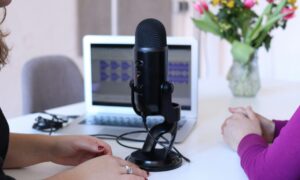Introduction
In the world of negotiation, there is a common misconception that success hinges solely on persuasive arguments and assertive communication. However, one often overlooked yet potent tool in negotiation is active listening. Active listening involves hearing the words being spoken, comprehending their underlying meanings, and responding thoughtfully. In this article, we will demystify the power of active listening in negotiation by drawing insights from The Negotiation Society Podcast. We will explore why operational listening matters, how it can transform talks, and provide practical tips for becoming a better listener.
The Importance of Active Listening
Active listening plays a pivotal role in negotiation for several reasons. First and foremost, it fosters trust and rapport between the parties involved. When individuals feel heard and understood, they are more likely to engage in open and honest communication, leading to a collaborative atmosphere where mutually beneficial agreements can be reached.
Furthermore, active listening enables negotiators to uncover underlying interests and motivations. Often, each party’s actual needs and desires may be concealed behind initial positions. By actively listening and probing deeper, negotiators can unearth these underlying interests, which form the basis for creative problem-solving and win-win solutions.
Insights from The Negotiation Society Podcast
The Negotiation Society Podcast is a treasure trove of insights from experienced negotiators and experts in the field. Let’s delve into some of the key takeaways that shed light on the power of active listening in negotiation:
Building Rapport: In one episode, negotiation expert Jane Reynolds emphasizes building rapport through active listening. Negotiators can create a foundation of trust and understanding by genuinely showing interest in the other party’s perspective, asking open-ended questions, and paraphrasing their thoughts.
Understanding Emotions: Active listening goes beyond words; it involves understanding and acknowledging emotions. In an interview on the podcast, renowned mediator Mark Thompson discusses the significance of recognizing and addressing emotions during negotiations. By actively listening to the feelings expressed by the other party, negotiators can defuse tensions, build empathy, and find common ground.
Seeking Clarity: The Negotiation Society Podcast frequently highlights the value of seeking clarity through active listening. Negotiation expert Sarah Johnson stresses the importance of asking clarifying questions to comprehensively understand the other party’s needs, concerns, and constraints. This enables negotiators to tailor their proposals and find mutually beneficial solutions.
Practical Tips for Becoming a Better Listener
Now that we understand the power of active listening let’s explore some practical tips to enhance our listening skills and become more effective negotiators:
Give Undivided Attention: When engaged in a negotiation, eliminate distractions and give your full attention to the other party. Maintain eye contact, nod, and provide verbal cues to show that you are actively listening.
Practice Empathetic Listening: Put yourself in the other party’s shoes and try to understand their perspective. By empathizing with their concerns and interests, you can build rapport and create an environment conducive to collaboration.
Use Reflective Listening Techniques: Paraphrase and summarize the key points expressed by the other party to demonstrate your understanding. This shows that you are actively listening and allows for clarifications and corrections if needed.
Ask Open-Ended Questions: Open-ended questions encourage the other party to elaborate on their thoughts and feelings, providing deeper insights. These questions begin with “what,” “how,” or “why” and invite more meaningful responses than simple yes/no questions.
Manage Your Response: As an active listener, it is crucial to manage your response effectively. Avoid interrupting, jumping to conclusions, or formulating counterarguments while the other party speaks. Instead, please allow them to express themselves thoroughly before offering your perspective.
Conclusion
Active listening is a powerful tool in negotiation that can transform outcomes and foster positive relationships between parties. By incorporating insights from The Negotiation Society Podcast, we have explored the importance of active listening, how it can influence negotiations, and practical tips for becoming a better listener. Remember, negotiation is not solely about speaking but about truly hearing and understanding. By mastering the art of active listening, you will unlock new opportunities for collaboration, creativity, and success in your negotiations.



































